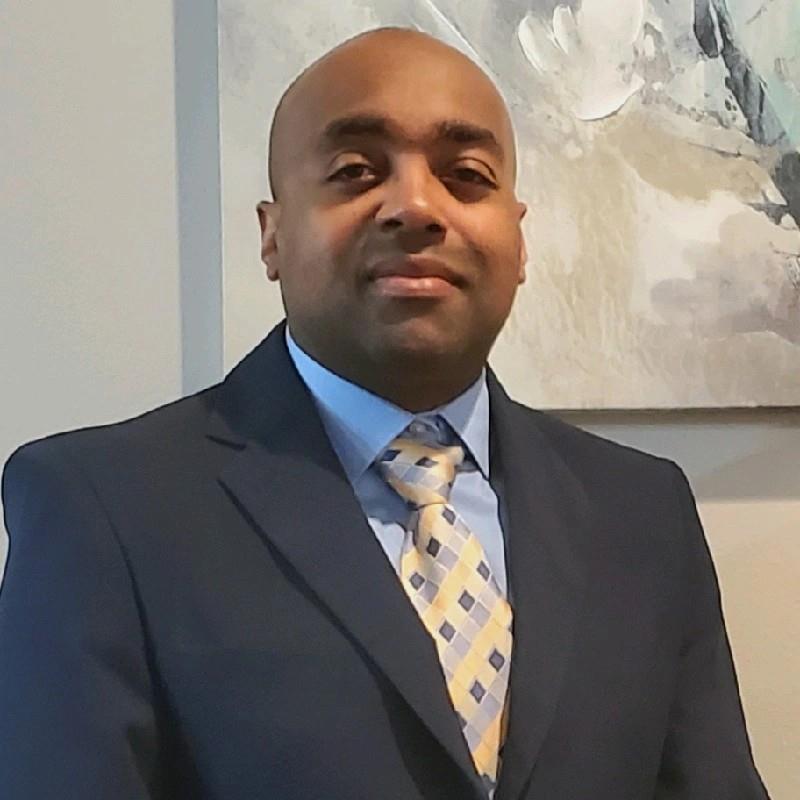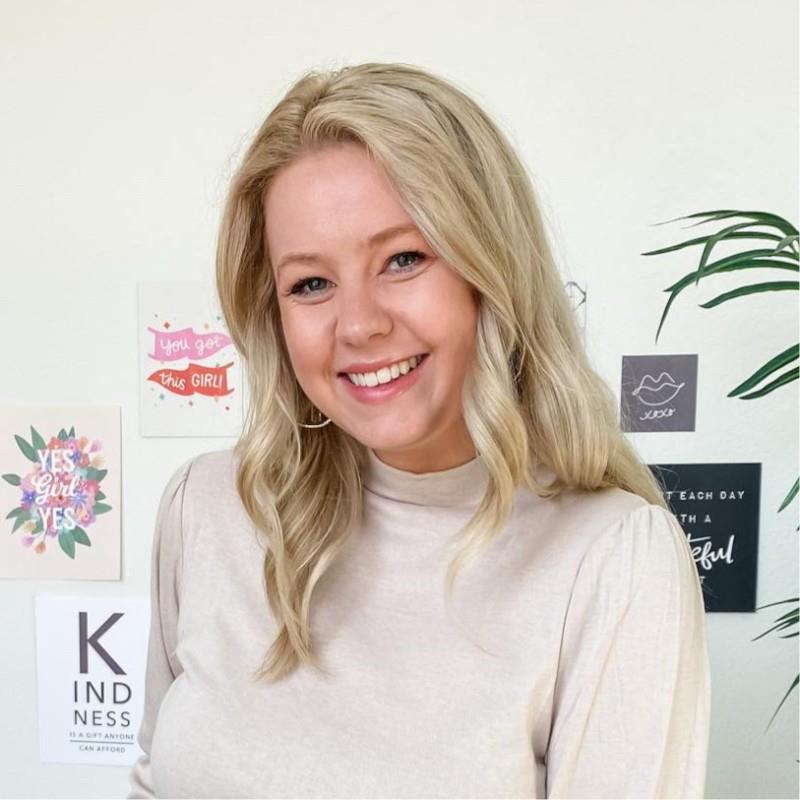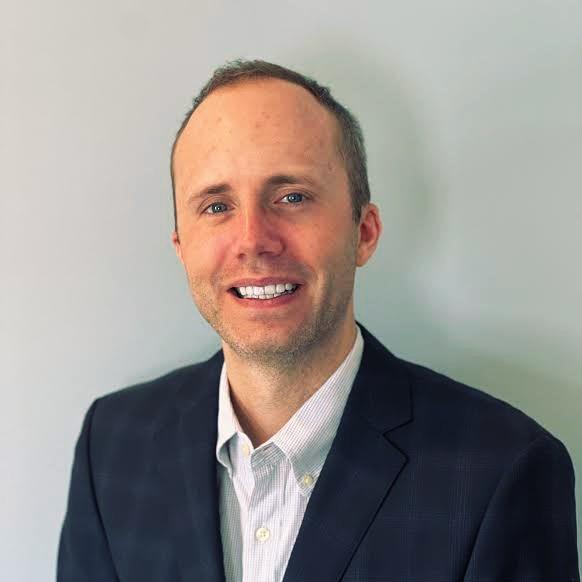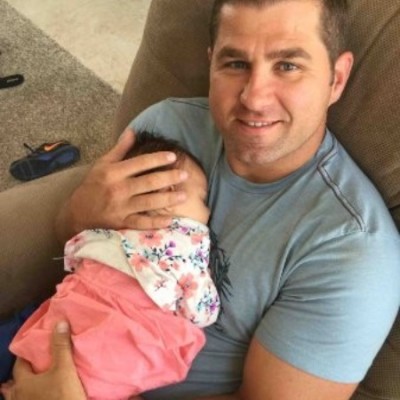How to Build Trust and Succeed in Medical Sales
In this episode of the Medical Sales Podcast, Samuel talks with Dan Docherty from BrainTrust about how neuroscience is transforming the way medical sales professionals build trust and communicate with impact. Drawing from his 25-year career in pharma, Dan explains how traditional training focuses too much on product and not enough on human connection. He introduces the concept of NeuroSelling®, showing how value-based storytelling and empathy drive real influence in conversations with healthcare providers. This episode reveals how the best reps in 2025 use emotional intelligence, authentic connection, and purposeful communication to create lasting trust and deliver meaningful results.
Connect with Dan Docherty: LinkedIn
Connect with Me: LinkedIn
Love the show? Subscribe, rate, review, and share! Here’s How »
Watch the episode here:
Or Listen to it on your favorite platform:
Episode Transcript:
00:05 – Samuel Adeyinka (Host)
Hello and welcome to the Medical Sales Podcast. I’m your host, samuel, founder of a revolutionary medical sales training and mentorship program called the Medical Sales Career Builder, and I’m also host of the Medical Sales Podcast. In this podcast, I interview top medical sales reps and leading medical sales executives across the entire world. It doesn’t matter what medical sales industry from medical device to pharmaceutical, to genetic testing and diagnostic lab, you name it. You will learn how to either break into the industry, be a top 10% performer within your role or climb the corporate ladder. Welcome to the Medical Sales Podcast and remember, I am a medical sales expert, sharing my own opinion about this amazing industry and how it can change your life.
00:50
Okay, so let’s talk about it. What I love about medical sales is, you know, I look at sales reps as they are the person that gives you permission to do the things you really want to do. That’s how I look at the sales rep. What I love about medical sales is that you’re doing that for physicians and the end user. The person that it makes the big impact on is a patient and in most cases if not every case to some degree it’s the quality of a patient’s life or it’s the fact that a patient gets to have a life life. When you think of it in that way and you think about what you guys do with leadership, how do you see what you do impacting that kind of work?
01:30 – Dan Docherty (Guest)
Yeah, can I take that from two lenses? I probably should have been a little bit clearer on this. So Brain Trust is actually was by Jeff Bloomfield, and Jeff Bloomfield came out of Genentech and when he was at Genentech they were launching a product and one of their brain cancer products back in the day and he was looking at kind of the neuroscience behind all that and while people were looking through the lens of drug development, he’s like wait a second, we, we train professionals, especially in the life sciences. We train them backwards. We train them so much on product that what happens to them when they get under stress? They’re going to run to product. And so he’s like there’s a better way to train people through kind of decision-making process relative to how we communicate for impact.
02:17
You asked me first about my story. You didn’t ask me for my resume. That’s a very different approach to us having a conversation as two human beings that come from completely two different backgrounds. We just happen to be on this podcast together, so that was really where we started. And the part of the story I didn’t tell you was I was in pharma for over 25 years and so my background.
02:39
So I started as a field sales rep at Park Davis right out of college and did sales sales management. Then went into marketing, built a medical liaison team, brand sales and marketing life sciences and loved it. I love the industry. So anybody listening to us that’s a medical person know that what you do makes a difference. How you go about it makes all the difference. And so, directly to your question, one of the things that we really help train you know kind of medical sales, if you want to call it that, people, I don’t care whether it’s diagnostics or whether it’s biotech or LaFarma or anything in the life sciences space is that you know how you authentically lead in building a personal connection is directly connected to the science of decision-making, which, if you want wanna go down that path, we can. But that’s so critical. We’re trained on surface level rapport and that’s not good enough In 2025, as we sit here today, it’s not good enough. It’s how most of us were trained.
03:34
Look at the diploma, look at the picture on the wall and go oh my gosh, you sail. I drink water. Check that out. Now. Here’s my product. So like that’s not good enough, man. And then when you get into the what we call the prospect story but in life sciences it’s more, as you appropriately described. It’s not only the HCP journey but it’s the patient journey and I’m literally convinced and I we work with a lot of life sciences companies is that. I think, personally, you might disagree with this. You said we could talk about anything that I think we’ve gotten numb to that. I think we’ve gotten numb to the mom that carries, you know, major depressive disorder and can’t get out of bed and she’s got two kids and she’s a third grade teacher. You know, like we talk about that like it’s a grand rounds or something and we cut, we become sterile and numb to it and we just try to run boom from a fake profile into drug data and it’s not good enough.
04:26 – Samuel Adeyinka (Host)
Talk to us about what the difference sounds like. What is the average rep in front of their customer doing today versus what, after experiencing brain trust, would be doing? Yeah, I love it so what does the difference sound like?
04:43 – Dan Docherty (Guest)
Okay, I love it. I love it. So let me do it in steps and then we can talk through like a scenario. So, as an example, here’s where and I’m going to I wrote an article back in 2021 called breaking the rep factory and it was published in farm 360, but I talked about a lot of us will go through the same machine when it comes to medical sales.
05:03
We get into training, we get our backgrounders, we get our binders, we learn all the medical clinical data, we learn the anatomy and the physio. We learn all that. And then we, we, we get it, we absorb it, we get our marketing materials. We get it, we absorb it, we regurgitate it, we check the box and we move on field. Now I want to caveat and preface all of this.
05:27
What I’m about to say doesn’t apply to everybody.
05:29
There’s just amazing people out there that are just phenomenal, authentic storytellers that communicate with purpose and passion, and they’re just but and for you, those of us, those of those people listening to us man, just keep doing what you do, you know, just keep doing that, you know.
05:43
Now, what I think a lot of other people fall into is we get all that information. We get under pressure. That pressure drives us to our highest level of training and we feel the pressure of oh my gosh, I only have 30 seconds or a minute and here’s what the what I think is what we normally get, surface level rapport with maybe a sub of substandard question like you know how you doing doc, or what’s new doc, or how’s treat you know, whatever it might be, it’s it’s, it’s not deep enough and we’ll go surface level rapport straight to product. We call that step one to step four. We we might even bypass step one and just depending upon the relationship, and we’ll go straight to product. Now, if someone were to come in and work through us and I think some of the differences are in the subtlety of this, but if I asked you and it was, it was you and you prefer to go by Samuel or Sam? Do you prefer Samuel?
06:36 – Samuel Adeyinka (Host)
Yes, I do.
06:37 – Dan Docherty (Guest)
Yeah, I love it. Okay. So if I said, hey, samuel, you know and I understood you at a values level, the things that you value as a practitioner relative to the patients that you serve, and we train them through that relative to what’s it really like in 2025, relative to the pressure that a physician or a nurse practitioner or a PA or the front office person, the pressure that they feel in any given day, and how are we leaning into what they value and they understand? We call that the personal connection story. It’s a value-based, belief-centered story that we train people through storytelling to model so that I can get that little bit of that deeper value-centric story back from the provider. I can get that little bit of that deeper value centric story back from the provider. Are they always going to give it to us? No, but I believe that surface level rapport is good. It’s not great. So that’s one big difference. The second real big difference is the power of visual storytelling through understanding the day in the life of the provider, not just the day in the life of the patient. Big difference in medical sales If I was out with a farmer and I worked for John Deere and I said, okay, tell me in 30 seconds the crop production cycle of a farmer.
07:54
And they’re like they’re going to start talking about the farmer and then they’re going to go straight to the horsepower in the tractor, or they’re gonna start talking about the farmer, then they’re going to go straight to cab comfort. I said, well, wait a second. What if we rolled the tape back and said, in 30 seconds, samuel, I want to ask you a quick question, or let me like kind of outline this and then ask you a question Every single day. When you get your feet out of bed as a farmer and you and you have to get the crop in the ground and if you’re in Europe, they call it the seeding and tillage window, but you’ve got to get your crop in the ground and from there you have to fertilize it and you have to spray it and from that cycle you have to harvest it. And if you don’t get the full harvest because you don’t have under control the operational things relative to your technology, relative to the your people on the farm, relative to your equipment, which is what we do If that’s not running efficiently, then what ended up happening? You sacrifice crop yield. So if you sacrifice crop yield, I’m going to assume that in that cycle what you care most about is net income. That net income is what you really care about. My equipment is just a piece of that.
08:56
So when you think about success on the farm, I’m trying to give you a non-life sciences so people don’t say well, he doesn’t understand life sciences A non-life sciences example, because I said now, when you think about that on the farm, what inside that cycle is putting the most pressure right now? And then maybe how can I serve you relative to the equipment we have, relative to operation, that site, operationalizing that cycle, if I can’t still tell the farmer story? That probably took me what? 30 seconds, maybe 45. I can’t tell it that quick. We’re going to run into our biology of self-preservation rather than other people preservation relative to putting ourselves in their shoes. Now, if I were to transfer out of that well you’re like, well, we don’t sell to farmers, but I move that now into a clinician and I think about the clinician story when they get up and they’ve got the pressure of maybe having to go to the hospital, if they still do that, if they’re hospital and a physician based, you know you have to understand that. So with the pressure might look different in the clinic than it does at the hospital. If I’ve got patients that are coming and I’m going in and I’m going the rounds or I have a procedure and then from the procedure I go to my office and from my office I’ve got all these medical records and things that I have to keep up on and that whole, that whole system. Then I got stacked up patients. Well, if I can navigate what they go through in the day, in the life, that’s different than I’m here to sell you a drug or I’m here to sell you a medical device or I’m here to sell you fill in the blank. So and then you compound that with the patient story and you get if you can’t articulate those like in a minute or two relative.
10:35
Then the urgency. That’s step three for us. The urgency around what’s what’s kind of getting in the way of that cycle for the patient journey and for you as the clinician, what’s crushing you on time, the way of that cycle for the patient journey and for you as the clinician, what’s crushing you on time, when I know that every single day you’re compressed with time? And according to the New England Journal of Medicine now I’m kind of making this up, but I think it’s relatively true. You know, burnout levels are so high in healthcare.
10:57
Now, how can I serve you in a way that when you see this patient that comes in with depression, I want to give you the most important data to make sure that that mom gets back to work doing her thing and I’ve got a bunch of clinical data here on that. But what can I show you that’s going to help you on that journey? I’m not bypassing one through three to go to four. That’s called neuro-selling. For us, it was born out of a process that Jeff Bloomfield created called story-based selling, and then it leaned into it. Eventually, in 2020, became neuro selling. That’s our kind of our base approach to teaching teaching people how to communicate and we call those kind of steps one through four. So I know that’s a lot but it’s really a power of storytelling that was great.
11:36 – Samuel Adeyinka (Host)
I gotta get that book, though. God is it? Is it like neuro selling 101 or something like that that I can?
11:40 – Dan Docherty (Guest)
call neuro. Well, we Well, jeff and I just rewrote a revision of it. This year it’s called Neuroselling 2.0.
11:47 – Samuel Adeyinka (Host)
I love it.
11:47 – Dan Docherty (Guest)
Okay.
11:47 – Samuel Adeyinka (Host)
So now I’m going to give you some pushback, doctor.
11:51 – Dan Docherty (Guest)
Give it to me.
11:54 – Samuel Adeyinka (Host)
So what about the physician that says hey man, who are you and what do you got? Come on, give it to me. I got patients, what’s going on? I got a procedure. What’s going on? I got a procedure, let’s get to it. I got to do this. I got to go, give it to me. Give it to me straight. How are we slowing things down to go through one, through four?
12:10 – Dan Docherty (Guest)
Yeah. So let me say this first the way behaviors are in communication you and I have Samuel, have communication habits, we have them, and so when we get under pressure, those show themselves. So what we like to make sure that people understand is that we’re not in the business of creating robots. People are too smart for that and AI is trying to do that, but we’ll leave that for a different conversation. But the reality is we’re not trying to create robots.
12:36
But until you move into unconscious competence relative to a process, only then I’m not thinking it’s like a great actor when you give them a script and that great actor is like do you do? You know that, and I direct children’s theater and do some theater and fun stuff like that but and my daughter’s a professional performer but one of the things that great actors know is or but most lay people don’t know is that when an actor is on a stage, they’re not not thinking, they’re not thinking about the words or the script. They it’s. They’re so unconsciously competent of studying the script, but yet won’t that when they get on stage, when they get all of these different environments like come on, kid, let’s go, I got 30 seconds, get it out. I got to go to procedure. They’re so unconsciously competent that they’re pulling the lever, that they need to pull and and and they just they do that.
13:30
And what I’m convinced of after and I I led and was around sales teams for over 30 years is that I think sometimes we get a little lazy. So when we get in those pressure situations now if I were coaching one of those people and they said that doc said that and let’s just say we couldn’t slow the pace down. So cause you have to? Very simple but very complex question If I can’t slow the pace down, then I might choose in that moment to pull the lever of going straight to product. The difference is I do it intentionally, I don’t do it because that’s always my default.
13:56 – Samuel Adeyinka (Host)
You don’t do it reactively, you do it.
13:58 – Dan Docherty (Guest)
That’s exactly right. I do it because I intentionally go Ooh, I’m going to bypass this, I’m going to go to here because the environment’s reading different than it normally reads, because what I love about medical sales, different than a lot of other sales, is we’re in the long journey with them. But we play a short term game, isn’t it? I mean we’re? Why do we keep going back to a doc’s office every two weeks, three weeks, for whatever the rhythm is? Because we’re in a long-term game. If I’m selling you a piece of capital equipment, it might be a short-term game. They have the equipment, they amortize that over a decade and then that’s it potentially for that deal. That’s not our game, you know. So what I tell people is now the other way. You could look at it and say, okay, well, wait a minute. Well, maybe that’s a smoke screen. And then I would ask okay, well, how much trust do you actually have with that provider? Because if you don’t have a deeper level of trust, the process doesn’t matter, cause that is one of the right.
14:55 – Samuel Adeyinka (Host)
I hope you’re enjoying today’s episode and I want to let you know our programs cover the entire career of a medical sales professional, from getting into the medical sales industry to training on how to be a top performer in the medical sales industry to masterfully navigating your career to executive level leadership.
15:13
These programs are personalized and customized for your specific career and background and trained by over 50 experts, including surgeons. Our results speak for ourselves and we’re landing positions for our candidates in less than 120 days in top medical technology companies like Stryker, medtronic, merck, abbott you name it. Would you run an Ironman race without training and a strategy? You wouldn’t. So why are you trying to do the same with the medical sales position? You need training, you need a strategy and you need to visit evolveyoursuccesscom, fill out the application schedule some time with one of our account executives and let’s get you into the position that you’ve always dreamed of. So when you say trust, are you talking about the ability to establish trust on the introduction, or are you talking about earned trust over a developing relationship of a couple months, or how are you framing this?
16:05 – Dan Docherty (Guest)
So can I ask you a question back? How would you you’re an expert in this space too how would you, how would you, answer that question? And then?
16:13 – Samuel Adeyinka (Host)
I’ll give you my answer. Yeah, I actually.
16:14 – Dan Docherty (Guest)
Because we’re unfiltered. I’ll just I don’t really it won’t bother me what you say. I’ll tell you what I’m going to say anyway.
16:18 – Samuel Adeyinka (Host)
I.
16:19 – Dan Docherty (Guest)
I love your perspective on that.
16:20 – Samuel Adeyinka (Host)
You got to give the people what it actually is. So I actually see it as you can develop immediate trust. I believe if you know what you’re doing, you understand your customer, you can literally create trust immediately. I am a firm believer in that, yeah.
16:40 – Dan Docherty (Guest)
So I believe you can be right, that in certain situations you’re right. I believe there’s situational context Like take you and I as an example. We don’t know each other. When you asked me to tell me about myself, I had a choice. I could have said okay, I’m Dan Docherty.
16:59
I did my undergrad at Miami University, my MBA at Xavier University, my PhD at Case Western. I spent 25 years in the pharmaceutical industry, you know, predominantly in neuroscience, epilepsy, adhd, depression, alzheimer’s disease and blah, blah, blah, blah, blah. That’s a choice, you know, and like now, if I’m so, I tell you that because if I’m leaning into the elements of building trust and I’m looking through the situational context, I’m always balancing. Everything’s a balance in communication, isn’t it Like? You can’t go too far this way? You can’t go too far this way, and the science supports that too. But if I’m going to lean into building personal connection and I’m going to lean into things like authenticity and humility and honesty and empathy and compassion and vulnerability, those things as compared to my credibility, where I want to show you I’m credible because I’m on your podcast. We don’t know each other, but yet if we’re going to really be honest with each other, which you gave me the leash to be like we’re going to go, we’re going to have a conversation and we’re not going to be afraid of what comes out of each other’s mouths. And I’m like, okay, that gave me a different, that drove up a little bit of adrenaline, a little bit of cortisol and I was like, okay, let’s go right. But I say all that because the best communicators in the world, situationally, they’re like am I going to lean on connection or I’m going to lean on credibility? The science would tell us, when it comes to trust, that if you activate the empathic network of the brain, consider it like a network the empathic network and the analytical network. If I activate the empathic network, you’re more open to new ideas. So the reason you can’t bypass the personal connection story or the prospect story is it’s because you’re not demonstrating not only empathy to me but compassion. So if you choose to skip it and go straight to product, you’re actually the reason it’s faulty is you’re activating the analytical network, which actually where people are less open to new ideas. Because that doc is going, I got to go straight into surgery, they’re in their task dominant mode and they’re not open to new ideas anyway. So if you can’t slow the game down. You’ve got a problem, you know. So you’ve got.
19:01
Sometimes you have to pick your moments. Sometimes you got to walk away and be like you know what, doc I honor that I’m going to you know I’m here every four weeks anyway. Love you Really, do so, appreciate you. Maybe next time we can get more time. And sometimes you got to walk away. So back to your thing on trust, though. Back to your thing on trust real quick.
19:16
What I what I fundamentally would love our listeners to to hear on this is trust is one of those things that and I and I cause I want to honor what you said, samuel, let you know I heard you, Cause that’s important. There are moments where we build trust really fast with people and it just happens, and then there are moments where trust deeper level of trust takes time. So as a seller I really believe you are, if anyone’s listening to us you should be viewing yourself as a professional communicator. You have one of the hardest jobs in the world to get somebody to make a behavioral change, where it’s so much easier to stay status quo. So you can’t just blow past and say, well, it’s warm and fuzzy about building trust. No, you have to intentionally think about how am I going to build trust? Maybe sometimes I get the trust in the moment because I show you, I care and it goes fast. Well, then, build on it. It’s not an event, it’s a process. But some people give it faster and some people don’t, and so we, as communicators and sellers, we have to be mindful of that.
20:19
And the other thing I’ll say about this topic too and then I let you kind of come at me here with what you got next is I’m just like maybe it’s a factor of my age, but I’m like stop playing games. You don’t have to be so cute as a seller. You’re there to serve them, to help us here. And people feel that it’s what’s called in the science world, it’s called emotional contagion. People feel that emotionally, like you actually care about what I care about. That’s empathy. I sense what you feel, I understand your perspective. But then there’s a difference to compassion, which means I want to do something and help you, put something in your hands for action when you’ve got that moment with that patient where I know you feel the pressure of time because you’ve got to run through X number of patients, which is more than you used to have to do 10 years ago. So I know I kind of went off on a tangent there. But trust is a really complex dynamic, isn’t it?
21:12 – Samuel Adeyinka (Host)
Yeah and I don’t. I don’t think you went off a tangent. I think you addressed a multifaceted issue, so it’s fair. So when I say trust, I am in alignment with everything you’re saying and I am speaking from the frame of if you can immediately establish that you understand your customer’s issue and speak your customer’s language and allow your passion for what your customer cares about to shine. I’ve seen it. I’ve seen it with students that I’ve worked with. I’ve seen it when I used to do it. I’ve literally seen trust be established in the moment. It’s very cool because now you can have that product conversation in a way that you would not be able to have if you hadn’t established that initial rapport.
21:54 – Dan Docherty (Guest)
So that’s yeah, that’s actually, that’s actually beautifully said, actually I, I 100% agree with that, and it and it’s kind of goes back to the last thing I was trying to say about well, why do we play? Why do we play games so much?
22:05 – Samuel Adeyinka (Host)
You know, I like that, yeah, you know.
22:07 – Dan Docherty (Guest)
It’s like why you know? It’s same. I feel the same thing when we’re teaching people to coach. It’s like why? Play games with people, you, you are, you are in their, in their journey and and I’ll you just triggered us. See, this is where the hippocampus comes in. You just triggered a story for me when I was a young rep in pharma and I was in a rural part of Ohio and where all my friends graduated from college and they all went to the big city in Chicago or New York and they’re all like, basically took their college experience there.
22:34
I ended up as a pharmaceutical sales rep in Portsmouth, ohio, which is, if you know Ohio, it’s the bottom point of Ohio. It’s like right on the border of Kentucky, west Virginia, lovely, lovely people, but not a lot there. And there I sit, at 21 years old, as a pharmaceutical rep and I didn’t know anything that I know now. Honestly, they over-trained me on product and I got out there and I just shoved product out all the time, but I just happened to be pretty good at building relationships. It was like cause. Now that I know strength finders, I communications by number two strengths. So I didn’t know that then, but I was pretty good at it, but I’ll never forget what you’re talking about, samuel. There was a physician of mine and I was.
23:15
After about a year and a half I was fortunate enough that they asked me to move into back to Cincinnati and take over a hospital territory which in those days was a promotion which was fast for me as a young, younger seller. I remember going to one of my docs offices and really great guy and we had what you described. We built a relationship pretty fast, but I never really understood his story and part of his story was that he had lost one of his sons tragically earlier in his life and I never knew that and I he saw something in me as a young seller, relationally, that was way more important than what I could say and tell him about our products, although we had the lovely conversations about that too. So the last time I ever called on him and I’ve not thought about this story, I swear to you in probably 35 years, sure, and I don’t know if I’ve ever actually even told it to anybody other than maybe my wife I walk into his office for the last time to say goodbye to the team and to him and he pulls me back into his office and he hands me a box and it was a wooden box and he said this is a candle holder like the longer, skinnier candles he’s like and I handmade this and I made this one for my son that I lost and I gave the other one to my other son he’s like and I want you to have it. I want you to have it before you leave and you know it is kind of in that moment. I was like you know, it’s the impact that we can make in a moment.
24:52
I do believe that this industry is one of the best in the world. I think it’s a hard job. It’s our it’s. I think it’s an easier job to do average. I think it’s a hard job to do great and to stay in it when the doors close. And the doors close and my 30 seconds here, 30 seconds here. So if you’re listening to us and that’s your role, your job’s hard. Those of us that train for a living, we know well, good trainers know your job’s hard, you know. And so, navigating these complex issues that we’re talking about, man, don’t bypass that deeper relationship because you feel the pressure of time. You’d never know the impact you’re going to make by really what you described as empathically understanding somebody’s story Sure.
25:29 – Samuel Adeyinka (Host)
I love it. I hope you enjoyed today’s episode and remember I have a customized and personalized program that gets you into the medical technology industry as a sales professional or any type of role for that matter. Become a top performer in your position and masterfully navigate your career to executive level leadership. Check out these programs and learn more at EvolvesAssesscom by visiting our site, filling out an application, scheduling some time with one of our account executives executives and allowing us to get you where you need to be. Stay tuned for more awesome content with amazing interviews on the Medical Sales Podcast.



























































































